Potential New Biomarker Could Help Assess Endometriosis Severity
High levels of two proteins, 'perforin 1' and 'major histocompatibility complex class I-related chain A (MICA)' are associated with the stage of endometriosis, found a new study published in the scientific journal Immunological Investigations. They could therefore be used as…
Key Points Lay SummaryMenstrual Blood Biomarkers for Noninvasive Diagnosis of Endometriosis
Aromatase, steroidogenic factor-1 (SF-1), and 17β-Hydroxysteroid dehydrogenase 2 (HSD17B2) levels in the menstrual blood can differentiate between patients with endometriosis and those without, according to a new study published in the European Journal of Obstetrics & Gynecology and Reproductive Biology. …
Key Points Lay SummaryKnowledge synthesis of the "Relevance of Endometriosis Diagnostic Tools"
Spiers et al. from the Department of Obstetrics and Reproductive Medicine at Angers University Hospital in France identified significant diagnostic challenges and the absence of definitive diagnostic tools for endometriosis. In response, they evaluated existing medical literature to enhance diagnostic…
Key Points Lay SummaryStudy Sheds Light on the Role of Programmed Cell Death in Endometriosis
Three genes, TNFSF12, AP3M1, and PDK2 could be key biomarkers of programmed cell death in endometriosis, according to a new study published in the peer-reviewed scientific journal Frontiers in Endocrinology. “These findings provide new directions for the early diagnosis and…
Key Points Lay SummaryIs there a Way of Knowing if I Have Endometriosis Without Surgery?
The levels of certain cell signaling molecules called interleukins (ILs) are higher while that of others is lower in patients with endometriosis, according to a new study published in the Journal of Minimally Invasive Gynecology. “There is mounting evidence that…
Key Points Lay SummaryHot research in endometriosis; new vessel formation: angiogenesis
Caixia Bo and Yunfei Wang from Jining Medical University, China have recently published their comprehensive review on angiogenesis-related aspects of endometriotic tissues in a recent issue of journal named Molecular Medicine Reports. The main potential pathogenetic aspects of endometriosis include retrograde…
Key Points Lay SummaryCurrent status of non-invasive biomarkers for endometriosis
Laparoscopy has been the gold standard for the diagnosis of endometriosis, however, the understanding of how many people have the condition is limited because not everyone undergoes surgery. The different treatment modalities for patients with unexplained infertility and the invasiveness…
Key Points Lay SummaryNeurotrophins proposed as possible biomarkers for endometriosis
As the search for a good-quality biomarker in endometriosis continues, certain growth factors have been investigated for their roles in the pathophysiology of the disease. Neurotrophins, as regulators of neuronal development and survival, are also known to take part in…
Key Points Lay SummaryBlood-based biomarkers for the detection of endometriosis and adenomyosis
One of the biggest challenges in endometriosis management is the delay in diagnosis. Scientists have been trying to come up with biomarkers to detect it quicker. Thinking blood-based biomarkers could aid in earlier diagnosis and help with the duly administration…
Key Points Lay SummaryA suggestion for a novel in vitro diagnostic test for endometriosis
As the research continues to find a gold standard non-invasive diagnostic method for endometriosis, there still is no definitive answer. One of the most commonly studied markers is Cancer Antigen 125 (CA125) – a biomarker that is secreted from the…
Key Points Lay SummaryA new potential biomarker proposal from leukorrhea of endometriosis patients
Endometriosis is typically diagnosed through laparoscopic surgery, which can be invasive and discourages some patients from participating. Therefore, there is a need for a non-invasive diagnostic method. Exosomes, small vesicles containing biological information, can be found in almost every type…
Key Points Lay SummaryCreating a reliable indirect immunofluorescence protocol as a promising diagnostic tool for endometriosis
Owing to its inflammatory nature, endometriosis results in the overproduction of reactive oxygen species (ROS) which disrupt the cellular functions and eventually lead the cell to apoptosis and cell cycle arrest. Senescence, the natural state of irreversible cell cycle arrest,…
Key Points Lay SummaryTSH receptor antibodies show promising results in the diagnostic workup of endometriosis
Dr. Svensson with collaborators from the Swedish Lund University has published their results on the possible role of TSH receptor antibodies as biomarkers in endometriosis diagnosis in a recent issue of “European Journal of Obstetrics & Gynecology and Reproductive Biology”.…
Key Points Lay SummarySoluble CD90 : a potential serum biomarker in endometriosis
Dr. Bochev and colleagues from several medical centers in Bulgaria published their research on the role of a possible serum biomarker in diagnosing endometriosis in a recent issue of the journal named “Disease Markers”. The definitive diagnosis of endometriosis, an…
Key Points Lay SummaryHow possible is it to diagnose endometriosis from a urine sample?
The development of non-invasive diagnostic methods in endometriosis is essential for successful surveillance. Various biomarkers have been used for this purpose, including biomarkers from serum, peritoneal irrigation fluid, endometrial tissue biopsy, and urine. Dr. Chen et al. from Taiwan conducted…
Key Points Lay SummaryA New Non-Invasive Marker for Endometriosis?
The reactivity of serum immunoglobulin G (IgG) with fucose-specific lectins AAL, LCA, and LTA could be a useful diagnostic biomarker for endometriosis, according to a new study published in the Journal of Inflammation Research. It could also be a clinical…
Key Points Lay SummaryWhat do endometriosis and ovarian cancer have in common?
While endometriosis is not a malignant disease, it is for sure known that it shares genetic disorders with cancers. In the bioinformatics study applied by Leyi Ni et al, the researchers analyzed the genetic pathways shared by both ovarian cancers…
Key Points Lay SummaryResearch Identifies New Genes That Could Be Targeted to Treat Endometriosis
Researchers identified three new genes that could help understand the invasiveness of endometriosis. They also identified one new gene that could be related to the recurrence of the disease. These genes may potentially be new therapeutic targets for endometriosis. In…
Key Points Lay SummaryExploring a bonafide biomarker to predict endometriosis
Endometriosis is a complex disease affecting many women in the reproductive age group. As it is important to figure out the mechanisms responsible for the disease, it is also crucial to identify biomarkers that can be used in the diagnosis…
Key Points Lay SummaryPromising potential research topic: diagnostic biomarkers for endometriosis
Dr. Toczek and collegues from the Department of Gynecology, Obstetrics and Oncological Gynecology of Medical University of Silesia in Katowice, Poland, have published a review paper on possible diagnostic aid of cytokines in endometriosis. This review appears in May issue…
Key Points Lay SummarySelected Blood Inflammatory Biomarkers May Help Identify Endometriosis
Levels of inflammatory biomarkers in the blood differ between women with endometriosis and those without the disease. Levels of some biomarkers also differ according to the stage of endometriosis. This is according to a new study by Polish scientists published…
Key Points Lay SummaryA pilot study for Endometriosis Potential biomarkers
Endometriosis is one of the most common female health disorders typically causing dysmenorrhea, dyspareunia, and pelvic pain, and may contribute to infertility. It is necessary to identify potential molecular biomarkers for diagnosis and regulatory factors behind the disease. The study…
Key Points Lay SummaryCombination of noninvasive biomarkers in the identification of endometriosis
The combined measurement of urine enolase, serum CA125, and CA19-9 may be an accurate test for the prediction and detection of endometriosis. This is according to a study published in the journal BioMedical Research International. The gold standard for the…
Key Points Lay SummaryA new Marker to Detect Endometriosis and Its Severity?
Macrophage migration inhibitory factor (MIF) could be a novel marker that could help diagnose endometriosis as well as to detect its severity. This is according to a new study by researchers in Egypt, published in the scientific journal "BMC Women’s Health".…
Key Points Lay SummaryCA125 do not correlate with pain and its severity among adolescents
Cancer antigen 125 (CA125) is a high molecular weight glycoprotein expressed in tissue derived from the coelomic and Mullerian epithelia including the uterus endometrium. Previous studies reported that CA125 is the most studied endometriosis marker. Women with endometriosis experienced different…
Key Points Lay SummaryEndometriotic mesenchymal stem cells may promote endometriosis
The cause of endometriosis is still debatable. Many researchers have accepted that retrograde menstruation, where the endometrial fragments released during menstruation attach and colonize the ectopic locations, is the most plausible reason. However, the numbers just do not add up.…
Key Points Lay SummaryPolymorphisms and endometriosis: a systematic review and meta-analyses.
The symptoms of endometriosis are varied among women and include chronic pelvic pain, infertility, and fatigue. There are no reliable blood tests and medical imaging techniques such as MRI and ultrasound are not always satisfactory. The lack of endometriosis-specific symptoms…
Key Points Lay SummaryThe relationship of serum concentrations of neuropilin-1 (NRP-1) and endometriosis
Although many serum biomarkers or biomarker panels for endometriosis are evaluated, none of them is exact enough to be used in daily laboratory practice. In a recent study, which has been published in Scandinavian Journal Of Clinical and Laboratory Investigation, Barberic…
Key Points Lay SummaryNew Protein for Endometriosis Diagnosis
A protein called TIMP3 (tissue inhibitor of metalloproteinase-3) could be used for the diagnosis and prognosis (likely course) of endometriosis. The early diagnosis of endometriosis is of paramount importance because it can help to diagnosis and thus initiate the right…
Key Points Lay SummaryPlausible biomarkers for noninvasive endometriosis diagnosis
Endometriosis is an estrogen-dependent benign gynecological disease characterizing ectopic deposition of endometrial tissue outside of the uterine cavity. It affects about 10% of reproductive-aged women and causes enormous negative impacts on the quality of lives. However, we do not have…
Key Points Lay SummarySeven Hormonal Biomarkers for Diagnosing Endometriosis
Endometriosis is an inflammatory condition characterized by implantation and invasive growth of endometrial tissue outside the uterine cavity. Although it is benign, endometriosis has cancer-like features, a mutation profile similar to that of ovarian cancer, and increased ovarian cancer risk.…
Key Points Lay SummaryUrocortin: A biomarker deserving investigation for endometriosis patients
Urocortin is a neuropeptide in the corticotropin-releasing hormone family and is expressed by eutopic and ectopic human endometria. Since it has paracrine and immunomodulatory effects, urocortin is thought to contribute to the pathogenesis of endometriosis. Its expression has been thoroughly…
Key Points Lay SummarySearching new biomarkers for endometriosis
This recent article published in Advances in Clinical Chemistry, is an overall summary of characteristics, physiopathological theories, diagnostic approaches and variety of biomarkers to diagnose endometriosis and penned by Coutinho et al. from Universidade Federal de Juiz de Fora, Belo Horizonte,…
Key Points Lay SummaryNon‑invasive biomarkers for endometriosis diagnosis
Endometriosis is a disease of women in reproductive age and its incidence varies between 5-10%. Since the diagnosis is based on the histological confirmation, there is an average of 7 to 11 years of delays in the diagnosis. Promising non-invasive…
Key Points Lay SummaryDetecting endometriosis using peripheral blood
Laparoscopic visualization of endometriotic lesions with histological confirmation is the gold standard for the diagnosis of endometriosis. However, this diagnostic procedure, due to the need for laparoscopy and variability of disease/symptoms, can have a major delay up to 8-10 years…
Key Points Lay SummaryCatching Endometriosis Early
Li et al., a group primarily from Sun Yat-sen University in the People’s Republic of China, recently published an article titled “Endometrium metabolomic profiling reveals potential biomarkers for diagnosis of endometriosis at minimal-mild stages” in Reproductive Biology and Endocrinology. The…
Key Points Lay SummaryNon-coding RNAs in endometriosis
The pathophysiological mechanisms causing the development of endometriosis, which is a heterogeneous disease remain enigmatic, and a lack of effective biomarkers necessitates surgical intervention for diagnosis. Non-coding RNA (ncRNA) molecules, which are important regulators of cellular function, have been implicated…
Key Points Lay SummaryExtending the Female Fertility Clock
Varela, Sanchez-de-Puerta, and Garcia-Velasco are a group of scientists from various institutions in Spain and they recently published a review article titled “Fertility, IVF and reproductive genetics” in Current Opinion in Obstetrics and Gynecology. In this publication, the authors discussed…
Key Points Lay SummarymiRNAs, Could Be a Reliable Biomarker of Endometriosis
miRNAs, small pieces of genetic material found in the blood could be used as a reliable marker to diagnose endometriosis, according to a study by U.S. researchers. They could also be used to follow the progression of the disease and…
Key Points Lay SummaryThe Chance of Getting Pregnant of a Woman with Endometriosis May Soon Be Predictable
Researchers have found a new way of predicting whether or not an embryo will be able to successfully implant into the womb of a woman with endometriosis. These findings could make it possible to predict whether she is likely to…
Key Points Lay SummaryThe Past, Present, and Future of Diagnosing Endometriosis
This review titled “Endometriosis: Epidemiology, Diagnosis and Clinical Management” published in Current Obstetrics and Gynecology Reports examines the distribution and factors associated with endometriosis. The analysis by Parasar, Ozcan, and Terry also delineates potential biomarkers and risk factors that could…
Key Points Lay SummaryBlood vessels formation in endometriosis
The endometrium undergoes dynamic changes during the menstrual cycle. Estrogen-driven angiogenesis is associated with the proliferative phase, and progesterone-driven vascular maturation occurs in the secretory phase. Hence, it is reasonable that the vascularization of endometriosis is also under complex regulation…
Key Points Lay SummaryNovel lipid biomarkers may make early detection of endometriosis possible
Currently, specific clinical diagnostic indicators for the early detection of endometriosis have not been found with enough specificity and sensitivity for widespread use. Novel diagnostic biomarkers are needed that are both effective and non-invasive to detect endometriosis as early as…
Key Points Lay SummaryBiomarker Networks Might Help Reveal the Mechanism Behind Endometriosis
Scientists have yet to uncover the molecular mechanisms that promote endometriosis disease progression. Xiao et al. recently published a study in Experimental and Therapeutic Medicine where they hoped to shed new light on the pathogenesis of endometriosis. In their study…
Key Points Lay SummaryEctoenzymes as endometriosis biomarkers
The diagnosis of endometriosis is often delayed by 7 to 11 years because of the lack of a non-invasive diagnostic test. The ovarian endometriomas occur in about 17%-44% of women with endometriosis and cysts which contain endometrial tissue and fluid…
Key Points Lay SummaryAdhesion molecules and endometriosis
Decoy receptor 3 (DcR3) is an immunomodulator regulated by estrogen and can regulate cell adhesion, which is a critical step in the initiation of endometriosis. In particular, the cell adhesion molecules, including ICAM-1 (intercellular adhesion molecule 1) and HCAM (homing…
Key Points Lay SummaryBiomarkers as a Diagnostic Tool
Ahn, Singh and Tayade discuss the difficulties and delay in diagnosing Endometriosis in their paper titled “Biomarkers in endometriosis: challenges and opportunities.” Thus far research has identified a multitude of potential biomarkers that are found in various parts of the…
Key Points Lay SummarySuperoxide Dismutase and Glutathione Peroxidase as biomarkers for endometriosis
When it comes to the diagnosis of endometriosis, the gold standard is a visual inspection by laparoscopy followed by histological confirmation. Laparoscopy is an invasive surgery. A noninvasive diagnostic tool for endometriosis is highly desirable; however, there are no validated…
Key Points Lay SummaryCombination Polymorphisms of Three "Estrogene-Related" Genes Increase the Risk of Endometriosis
Cardoso et al. recently published a paper titled “Combined Effect of the PGR +331C > T, CYP17A1 -34A > G and CYP19A1 1531G > A Polymorphisms on the Risk of Developing Endometriosis” in Revista brasileira de ginecologia e obstetrician. The…
Key Points Lay SummaryGlycodelin and altered endometrial function in endometriosis
A laparoscopic examination is the only diagnostic tool for endometriosis to date. Since the procedure is invasive, there has been much effort by researchers to develop a biomarker for non-invasive diagnosis of endometriosis. To this end, there has been growing…
Key Points Lay SummaryThe Role of IL-35 in the Pathogenesis of Endometriosis
The molecular mechanism that drives endometriosis remains elusive to this day. Zhang et al believe that interleukin 35 (IL-35) plays a role in the pathogenesis of the disease. Their recent publication in Reproductive Sciences titled “Upregulation of Interleukin 35 in…
Key Points Lay SummaryCA-125 may be useful for the diagnosis of deep infiltrating endometriosis
Marco Aurélio Oliveira et al. conducted a prospective study at outpatient gynecology clinic and Endometriosis Treatment Center in Pedro Ernesto University Hospital (Rio de Janeiro State University) between January 2012 and January 2016 with two groups of patients: deep infiltrating endometriosis…
Key Points Lay SummaryThe Endometrium Itself is Genetically Different in Endometriosis Patients
Researchers in China identified a number of genes that are differentially expressed in the eutopic endometrium of women with endometriosis and those without. The researchers think that these genes may be involved in the development of endometriosis and that they…
Key Points Lay SummaryCould the cell surface protein "EWI-2" be the new diagnostic marker for endometriosis?
Further Understanding: Researchers from the Reproductive Medicine Center of Wuhan University sought to observe the differential expression of EWI-2, (a cell surface protein and an early activation marker, also known as IGSF8 - Immunoglobulin superfamily member 8) in 145 women…
Key Points Lay SummaryMPO not a Good Biomarker for Endometriosis, Research Suggests
Levels of an enzyme called myeloperoxidase (MPO) in the body cannot be used on their own as a biomarker to detect the presence of endometriosis, suggests a study published in the journal Gynecologic and Obstetric Investigation. Because MPO is an…
Lay Summary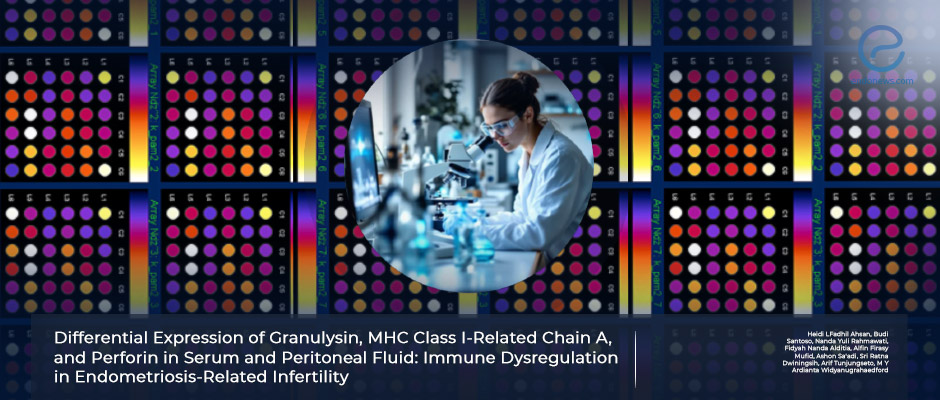
 By Özge Özkaya
By Özge Özkaya
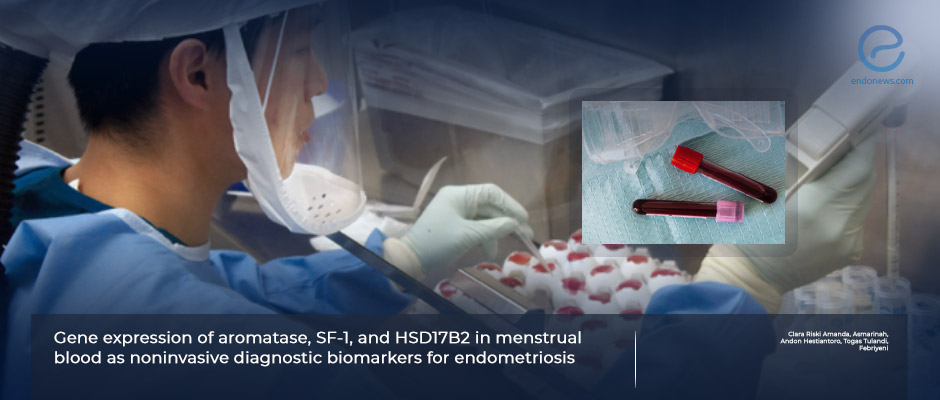
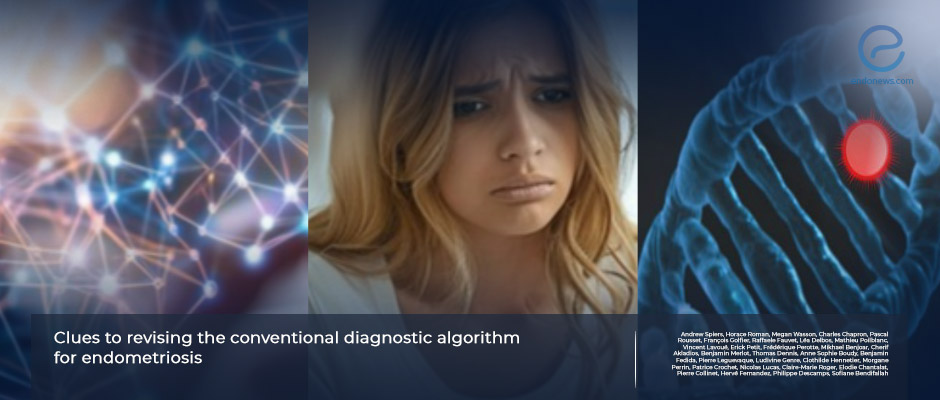
 By Selma Oransay
By Selma Oransay
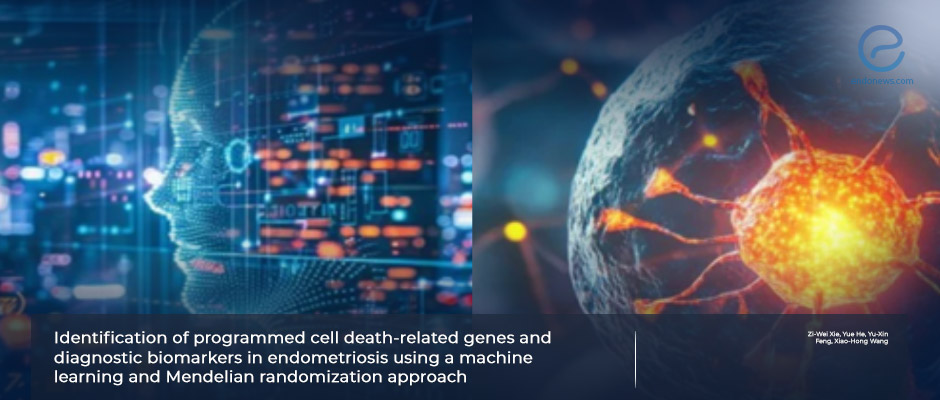
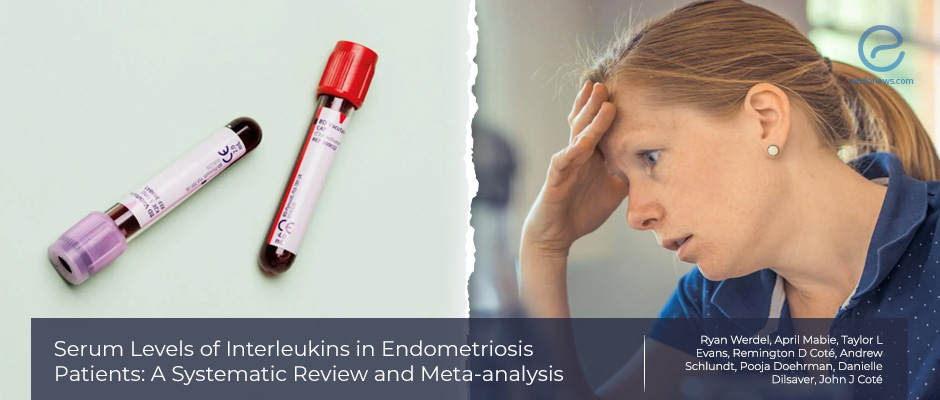

 By Nasuhi Engin Aydin
By Nasuhi Engin Aydin

 By Eylül GÜN
By Eylül GÜN










 By Bahar Yuksel
By Bahar Yuksel



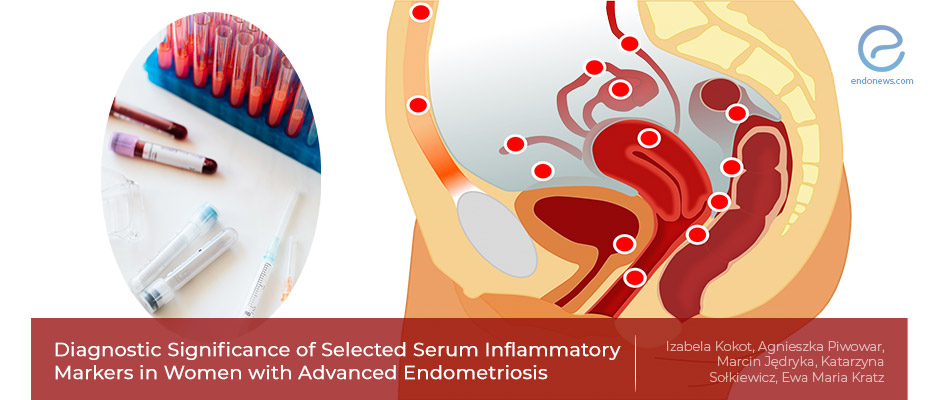

 By Ellen Tumimbang
By Ellen Tumimbang

 By Timur Seckin
By Timur Seckin



 By Yu Yu
By Yu Yu

 By Yohan Suryo
By Yohan Suryo

 By Irem Onur
By Irem Onur


 By Dr. Youngran Park
By Dr. Youngran Park




 By Hale Goksever Celik
By Hale Goksever Celik


 By Kasthuri Nair
By Kasthuri Nair
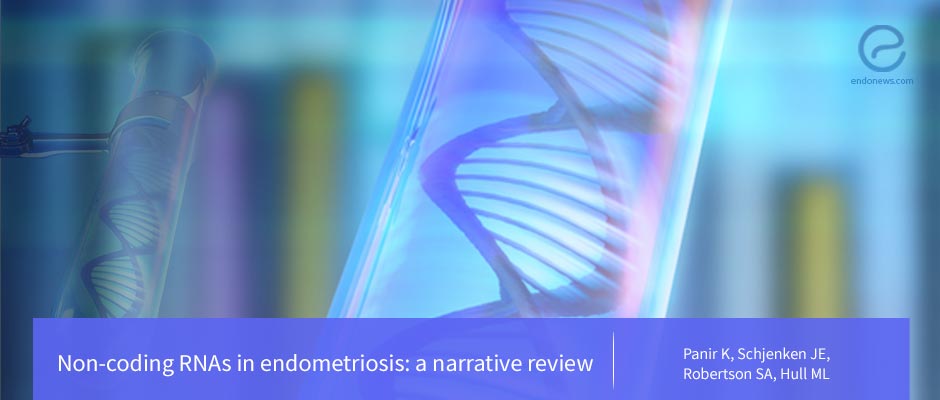






 By Murat Osman
By Murat Osman



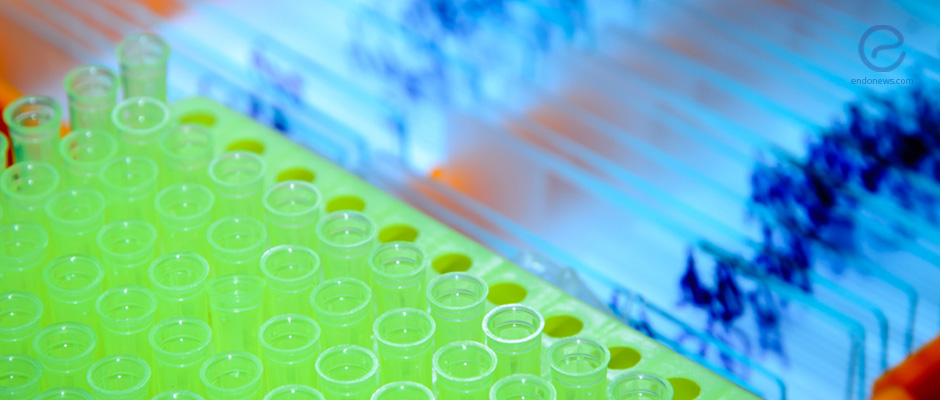

 By Demet Candaş Green
By Demet Candaş Green




 By Asli Bahadirli Talbott
By Asli Bahadirli Talbott


